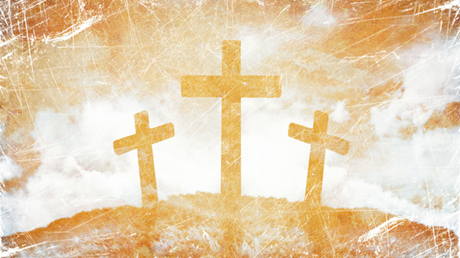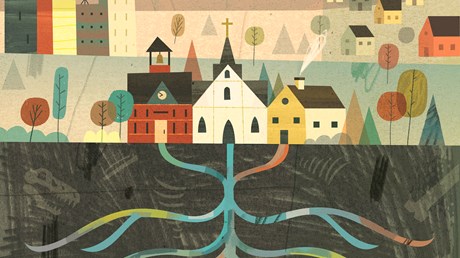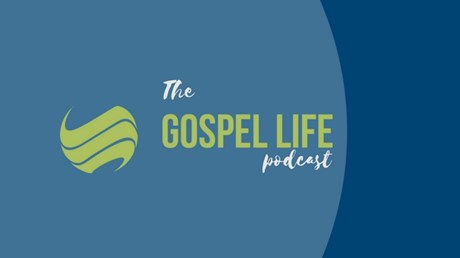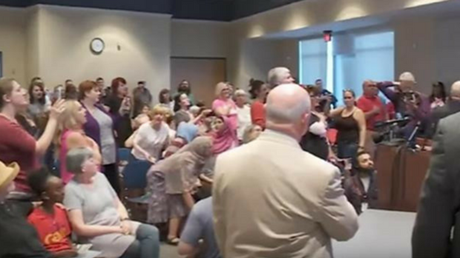Tuesday, 28 February 2017
“Happy people never become Nazis.” Sam Harris and David Frum on Trump
from
http://www.patheos.com/blogs/tippling/2017/03/01/happy-people-never-become-nazis-sam-harris-frum-trump/
Psalm 73:25-26
from
https://www.biblegateway.com/passage/?version=NIV&search=Psalm%2073:25-26
I Was an Ash Wednesday Rookie
How the liturgical service enriched my non-liturgical faith.

When the first Hunger Games movie was released in 2012, my daughter Bethany was 11 years old. Influenced by a determined lobby group of pro-Hunger Games preteens at her school, she mounted a vigorous campaign at home. She very badly wanted to see the movie; I was equally committed to her not seeing the movie.
At one point, completely exasperated, I demanded of her, “Why in the world would you want to see a movie that portrays the death of children as entertainment?”
Her answer surprised me. “I think, Mom,” she said thoughtfully, “that for a story to really matter, you have to know that the stakes are high. You have to realize that it’s life or death.”
I won’t tell you who won the movie debate. But I found myself remembering Beth’s insight into stories almost exactly a year ago, after I attended my first Ash Wednesday service.
Ancient Rhythms
My husband, Mark, and I both came to faith in the sort of evangelical environment where “church calendar” means a list of congregational events and birthdays. We celebrated Christmas, of course, and Easter too—but that was about it. My experience with Advent was limited to chocolate-laden drugstore calendars. Pentecost was for the charismatics down the street. And Lent was a mysterious, rather gothic observance reserved for the Catholics.
It wasn’t until we were well into adulthood that we became more curious about the ancient rhythms of the church. We developed some friendships with folks who were following Jesus in liturgical traditions, and we could see that their observance of certain rituals and seasons was bringing them life. No matter how relentlessly the world of clocks, crises, day-timers, and deadlines ...
from
http://feeds.christianitytoday.com/~r/christianitytoday/ctmag/~3/Fo6A2husQ7E/i-was-ash-wednesday-rookie.html
Theology for Life (Ep. 13): The Intersection of Acting & The Christian Faith
Actor and director Mark Lewis is Associate Professor of Communication at Wheaton College.

What is it that people are looking for in theater or entertainment as it relates to theology? Professor Mark Lewis talks in this episode of Theology for Life about why story is part of our narrative and why we are all ‘actors’ in different ways. Something that acting does is that it allows us to be more in touch with how and what we are communicating and if we are being authentic to who we are in Christ.
Ed, Lynn, and Mark discuss where the movie industry going, and what Christians should be watching and surrounding ourselves with. All of us have different tolerances, Lewis says, but we do need to be aware that Hollywood is mirroring our culture and trying to sell us something. We must ask if, after we have watched something, have we drawn further or closer to God?
Lewis reflects on what actors must consider about the play and the part, and how his life was impacted by certain roles.
An actor spends his or her life examining his or her own life in order to build a bridge to someone else’s life, says Lewis. We must understand things around us to qualify us to be authentic. There are certain qualities we must have—empathy, compassion, authenticity. The world doesn’t need another actor, Lewis says. What the world is dying for is truth-tellers and the arts are a good place to begin to tell the truth.
Mark Lewis is Associate Professor of Communication and Director of the Theater Programs at Wheaton College. He previously worked as an actor in New York City for 15 years.
Lynn Cohick is Professor of New Testament at Wheaton College.
Ed Stetzer holds the Billy Graham Distinguished Chair of Church, Mission, and Evangelism at Wheaton College, is Executive Director of the Billy Graham Center for Evangelism, ...
from
http://feeds.christianitytoday.com/~r/christianitytoday/ctmag/~3/D8RjdI2O5wQ/theology-for-life-ep-13-intersection-of-acting-christian-fa.html
Cities and Multiculturalism: Two Trends in Church Planting Today
Most 25-year-old church planters are planting the same way we’ve always planted.

I’ve written a lot on church planting. One of the things I’m continually reminded of is that as culture changes, so too does our strategy and methodology for planting churches. If we are focused on reaching people for Jesus, then we must be willing and able to plant churches which most effectively do that.
As I continue to look at church planting, let me share just two trends I’ve noticed over the past few years, but also talk about their counter trends as well.
Trend 1: An Emphasis on Urban Centers
A number of major denominations continue to emphasize church planting in urban centers. Part of the urban trend is because people are going back to the cities. Church plants follow people. And church plants in urban centers must deal with serious issues of gentrification, poverty, and marginalization. As people move back to cities, some people are pushed out, which creates more tension that the Church must speak into.
Unfortunately, with the urban focus has come a less organized urban focus among the urban poor. Although there are exceptions, what's happened is that strategically, denominations and their resources have been focusing on more of the following the people to the city instead of planting among those who have been there for decades.
The good news is that there's always a flow of under-the-radar, economically depressed, marginalized people planting churches reaching other marginalized people. There are people who feel the Spirit move them and they go plant a church.
A note on counter trends: If church plants follow people and a trend is towards urban centers, I must also say that there are now movements in the rural areas to counteract the high emphasis on cities. When urban centers become the focal ...
from
http://feeds.christianitytoday.com/~r/christianitytoday/ctmag/~3/qUNY4lBxLgQ/cities-and-multiculturalism-two-trends-in-church-planting-t.html
The Benedict Option’s Vision for a Christian Village
How to conserve and strengthen the American church.

For most of my adult life, I have been a believing Christian and a committed conservative. I didn’t see any conflict between the two until my wife and I welcomed our firstborn child into the world in 1999. Nothing changes a man’s outlook on life like having to think about the kind of world his children will inherit. And so it was with me. As Matthew grew into toddlerhood, I began to realize how my politics were changing as I sought to raise our child by traditionalist Christian principles. I began to wonder what, exactly, mainstream conservatism was conserving. It dawned on me that some of the causes championed by my fellow conservatives—chiefly an uncritical enthusiasm for the market—can in some circumstances undermine the thing that I, as a traditionalist, considered the most important institution to conserve: the family.
I also came to see the churches, including my own, as largely ineffective in combating the forces of cultural decline. Traditional, historic Christianity—whether Catholic, Protestant, or Eastern Orthodox—ought to be a powerful counterforce to the radical individualism and secularism of modernity. Even though conservative Christians were said to be fighting a culture war, with the exception of the abortion and gay marriage issues, it was hard to see my people putting up much of a fight. We seemed content to be the chaplaincy to a consumerist culture that was fast losing a sense of what it meant to be Christian.
In my 2006 book, Crunchy Cons, which explored a countercultural, traditionalist conservative sensibility, I brought up the work of philosopher Alasdair MacIntyre, who said that Western civilization had lost its moorings. MacIntyre said that the time is coming when ...
from
http://feeds.christianitytoday.com/~r/christianitytoday/ctmag/~3/thm_TD_ziMM/benedict-options-vision-for-christian-village.html
Monday, 27 February 2017
Defending Methodological Naturalism
from
http://www.patheos.com/blogs/tippling/2017/02/28/defending-methodological-naturalism/
Abortion And Divine Confusion
from
http://www.patheos.com/blogs/tippling/2017/02/28/abortion-divine-confusion/
2 Timothy 1:7
from
https://www.biblegateway.com/passage/?version=NIV&search=2%20Timothy%201:7
The BGCE Gospel Life Podcast (Ep. 3)
Start each week with this encouragement to show and share the love of Jesus.

Episode Three | Is There a One-Size-Fits-All Evangelism?
Today Christina Walker, Associate Director of Academic Programs at the Billy Graham Center for Evangelism, talks about how people experience love differently and why our evangelism must take that into account. How can we best love each individual person we encounter this week? We show and share the love of Jesus best when we move past a one-size-fits-all strategy.
Episode Two | Are You Praying for Gospel Conversations?
John C. Richards, managing director of the Billy Graham Center for Evangelism, discusses the importance of praying for gospel conversations. Once we start praying, God will begin to open doors, and it will astonish us what He will then do. So if you aren’t, start praying this week that God would lead you to the people He wants you to engage with the good news of Jesus.
Episode One | Why is Gospel Witness Important?
Join Ed Stetzer, executive director of the Billy Graham Center for Evangelism, as he discusses the reality of where we are without Jesus, the importance of gospel witness, and our role in pointing others to Jesus.
Ed Stetzer holds the Billy Graham Distinguished Chair of Church, Mission, and Evangelism at Wheaton College, is Executive Director of the Billy Graham Center for Evangelism, and publishes church leadership resources through Mission Group.
from
http://feeds.christianitytoday.com/~r/christianitytoday/ctmag/~3/onknK9_zyAk/bgce-gospel-life-podcast-ep-3.html
Trump Edging Ever Closer to Authoritarian Dictatorship
from
http://www.patheos.com/blogs/tippling/2017/02/27/trump-edging-ever-closer-authoritarian-dictatorship/
Died: H. Wilbert Norton, Who Taught Christian Colleges to Care About Missions
Congo missionary and TEDS, Wheaton, and RTS educator organized first Urbana conference.

H. Wilbert Norton, whose lifelong leadership brought a missions focus to Christian higher education, died last Monday, less than a week after celebrating his 102nd birthday.
Norton served at more than a half-dozen Christian schools prior to his retirement in 2003, expanded theological education in Africa as an Evangelical Free Church missionary, and helped organize InterVarsity Christian Fellowship’s earliest student mission conference.
“Norton’s widespread impact as a church and denominational leader, educator, and missionary has left an amazing legacy,” said Trinity International University president David S. Dockery, who gave the sermon at his funeral Saturday. “We offer thanks to God for [his] life and influence.”
Norton launched missions programs at: Trinity Evangelical Divinity School, where he also served as president; Wheaton College Graduate School, where he also served as dean; and Reformed Theological Seminary, where he taught in Jackson, Mississippi, and Charlotte, North Carolina.
“Norton’s warm heart for sharing the gospel and visionary leadership for global missions has an enduring legacy in the world today through the many lives he touched and the many thriving institutions … that he worked to start or helped to grow,” stated Philip Ryken, Wheaton’s president.
Part of the first masters-level cohort at Columbia Bible College in the late 1930s, the Chicago native and Wheaton alumnus served as one of the first leaders of the Student Foreign Missions Fellowship—an evangelical counterpart to the Student Volunteer Movement, which had shifted more theologically liberal.
The organization became a part of the early InterVarsity Christian Fellowship ...
from
http://feeds.christianitytoday.com/~r/christianitytoday/ctmag/~3/xCDXkVRntqo/died-wilbert-norton-missions-teds-wheaton-rts-ivcf-urbana.html
Chaplain: They Jeered My Prayer in Jesus' Name at GOP Town Hall. Here's My Response.
"Jesus has been booed many times," says chaplain jeered during town hall prayer.

Ed: What happened last week when many at the town hall meeting started to protest during your prayer?
Michael: I’m a chaplain of the state of Louisiana with a group called The Capitol Commission. I was asked a week earlier to come in, like I often do at events throughout the state. For decades, most of our events have opened up with an invocation of prayer followed by the Pledge of Allegiance and then whatever the event is.
I fully expected to ask the blessing upon the meeting, have a sense of dependence on God and in God we trust, together we would say the pledge, and then the meeting would proceed. However, there were about 800 people present, and only 200 seats available. It was a crowd that was amped up at the start, and when Senator Bill Cassidy arrived, I kicked things off with prayer. However, there was so much shouting and chaos that I paused for a moment to see whether I should start.
It was clear after a while that it wasn’t going to stop, so I proceeded with the prayer. As I prayed in Jesus’ name, there were shouts of “Lucifer” and “separation of church and state.” Some people referred to me as a Nazi. That was the atmosphere during the prayer time. During the pledge, there was also a little disrespect. Many people turned their backs or shouted during the pledge, dishonoring the time.
Ed: Were there other factors that came into this? Many people remember the Democrats supposedly booing during the DNC when in reality the booing was because of other issues. Did something similar happen here? Or were they actually booing you for praying?
Michael: Many who came seemed to have some honest concerns. Certainly, people had strong political opinions. I think it was an organized protest ...
from
http://feeds.christianitytoday.com/~r/christianitytoday/ctmag/~3/T-hAIXpmAD4/my-interview-with-dr-michael-sprague.html